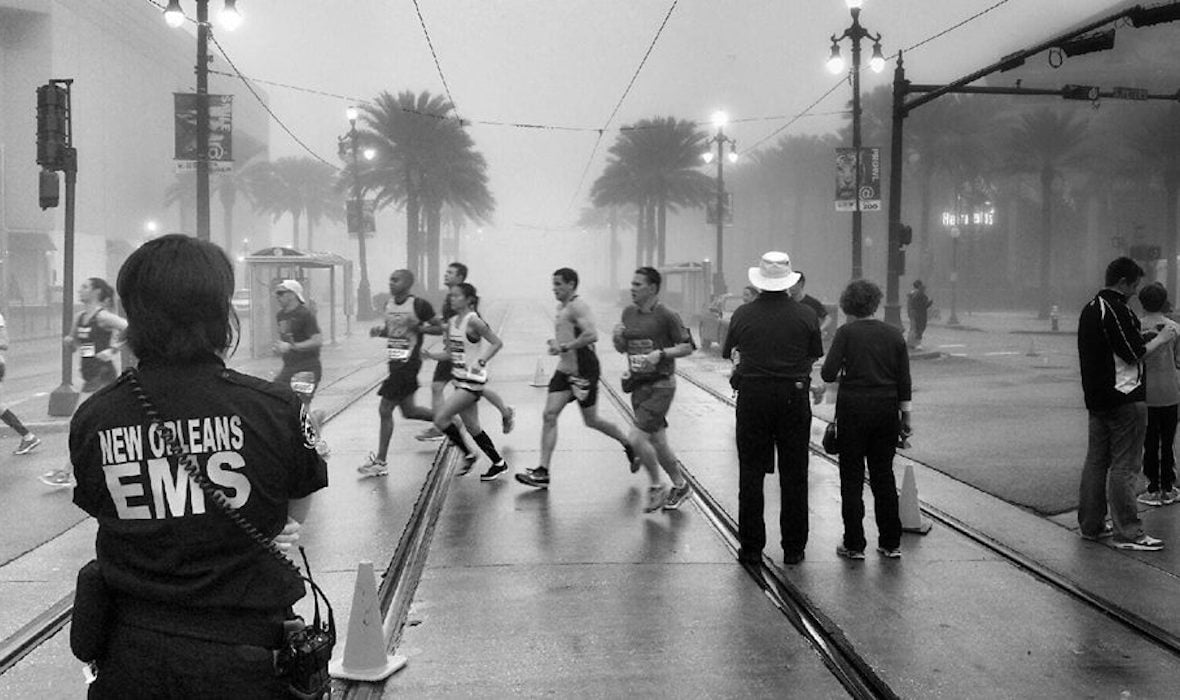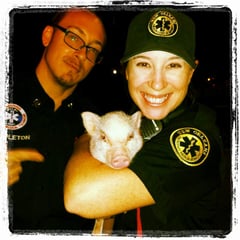Pulsara Around the World - February 2026
January Recap The start of 2026 was on the slow side for our events schedule, with our team heading to the Florida Fire & EMS Conference, the...

EDITOR'S NOTE: Special thanks to Jessie Senini for writing today's blog post. You can connect with her on LinkedIn.
I’m sitting here thinking about how to even start a “thank you” letter to my fellow EMS brothers and sisters in arms for everything that you do, that we know you do. However, I can’t help but wonder, does saying, “you are so appreciated,” mean that much when it’s coming from another medic? The answer is yes, truly and deeply. And perhaps it is even more so that I appreciate you now because of knowing where you have been and what you have been through.
For those not in the field, it’s easy to forget about the role of EMS in our lives. It’s a job that works predominantly behind the scenes until they are needed; countless hours training and preparing for whatever comes their way (and usually at 2 or 3 o’clock in the morning). It’s imperative that we always remind ourselves to stop and thank these people for everything they do. It’s not just a job - it is a dedication to their fellow mankind to make sure they will do everything possible to save your life.
So every year for one week, the country and the public safety community come together to celebrate and say “Thank You” to our nation’s EMS heroes. For 2018, the American College of Emergency Physicians (ACEP) has partnered together with the National Association of EMT’s (NAEMT) to take on the theme of “Stronger Together.”
You don’t have to work in EMS for very long to understand how much of a family it truly is. After all we live together, get dirty in the trenches together, cry together, laugh together, miss meals together, share holidays together, feel joy together, and feel hurt and pain together. We are stronger together. Out there, wherever it is that you serve, you are expected at any given second to drop everything that you are doing and prepare for the worst. And while the job is not performed for recognition, it is absolutely deserved.
 We often think of EMS as “just a job,” and forget that it is also a total investment of your mind and body. It’s a difficult profession to explain. Just the other night, a dear friend of mine said, “I understand what it is you do, but when I stop and actually think about it - well I just don’t know how you do it.”
We often think of EMS as “just a job,” and forget that it is also a total investment of your mind and body. It’s a difficult profession to explain. Just the other night, a dear friend of mine said, “I understand what it is you do, but when I stop and actually think about it - well I just don’t know how you do it.”
She is right, oftentimes our non-EMS colleagues are unable to grasp this profession that we give ourselves to 100%. One minute, we may be in a calm living room helping someone with chest pain, and an hour later, we’re in a vehicle turned upside down trying to figure out how to get someone out of a crumpled back seat that is sinking into mud. The human emotions from bystanders and patients don’t leave us when we clock out at night - we carry it in our memories … sometimes forever.
We don’t always have loved ones we can pour our hearts out to. Often we want to protect them from the horrible things we have seen, and sometimes they just don’t want to hear it because it is too much for them to listen to (like the time I told my mom I was in an abandoned drug house looking for a body in the middle of the night - big mistake).
More so than ever with suicide and depression being one of the biggest epidemics that our profession is facing, we need each other. So for those of you still running in the game - stop for a minute and take this time to really take care of yourself and each other. KNOW that you are appreciated. For those of you not in EMS - thank your medics, show them you care with a simple “thank you,” a cup of coffee, or let them to the front of the line if they are trying to get food (for the love of all things - let them get food!) It’s no coincidence that the theme of EMS Week this year is Stronger Together, because we are absolutely stronger when we stand as one.

January Recap The start of 2026 was on the slow side for our events schedule, with our team heading to the Florida Fire & EMS Conference, the...

Recent research shows how Pulsara was successfully leveraged to connect more than 6,000 COVID-19 patients to monoclonal antibody infusion centers via...

At Pulsara, it's our privilege to help serve the people who serve people, and we're always excited to see what they're up to. From large-scale...